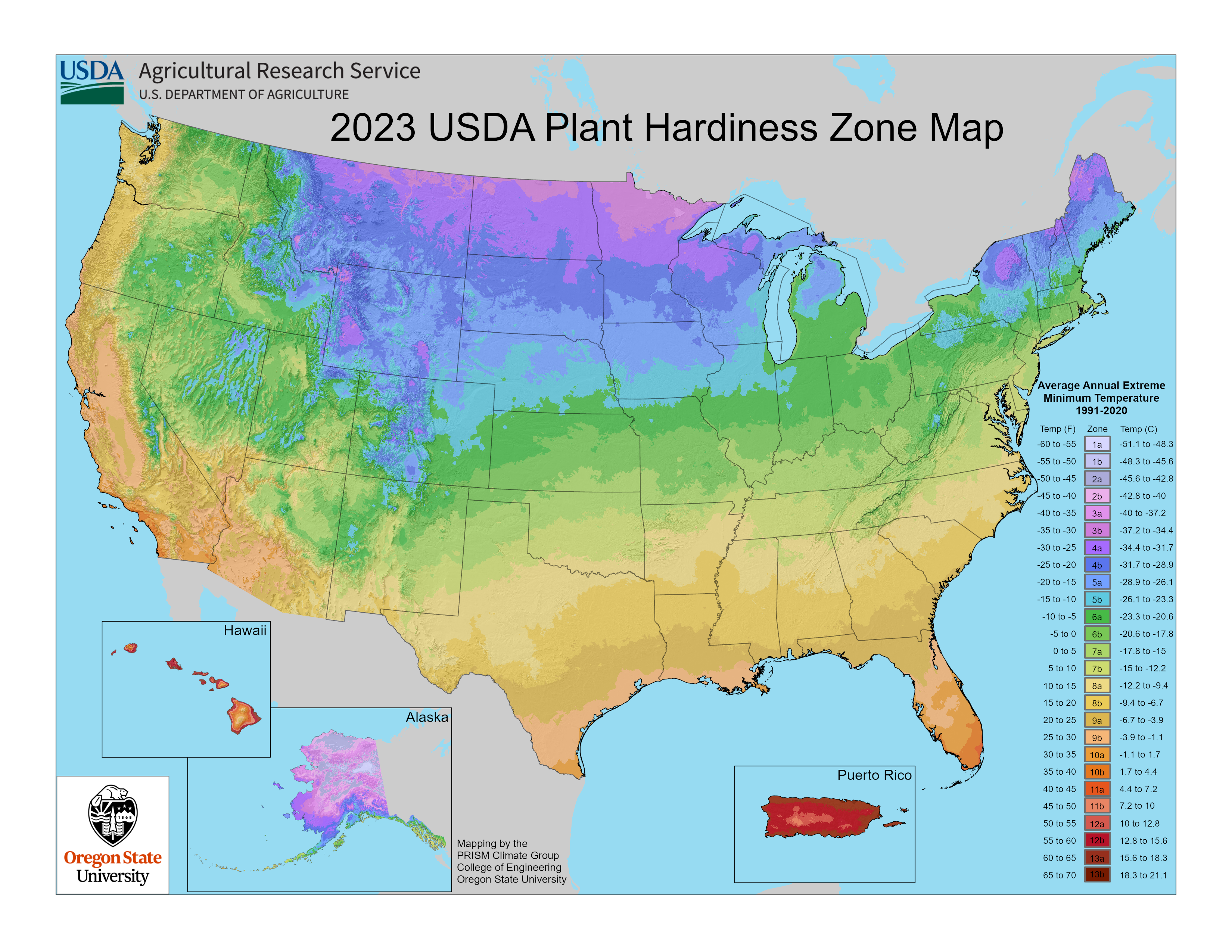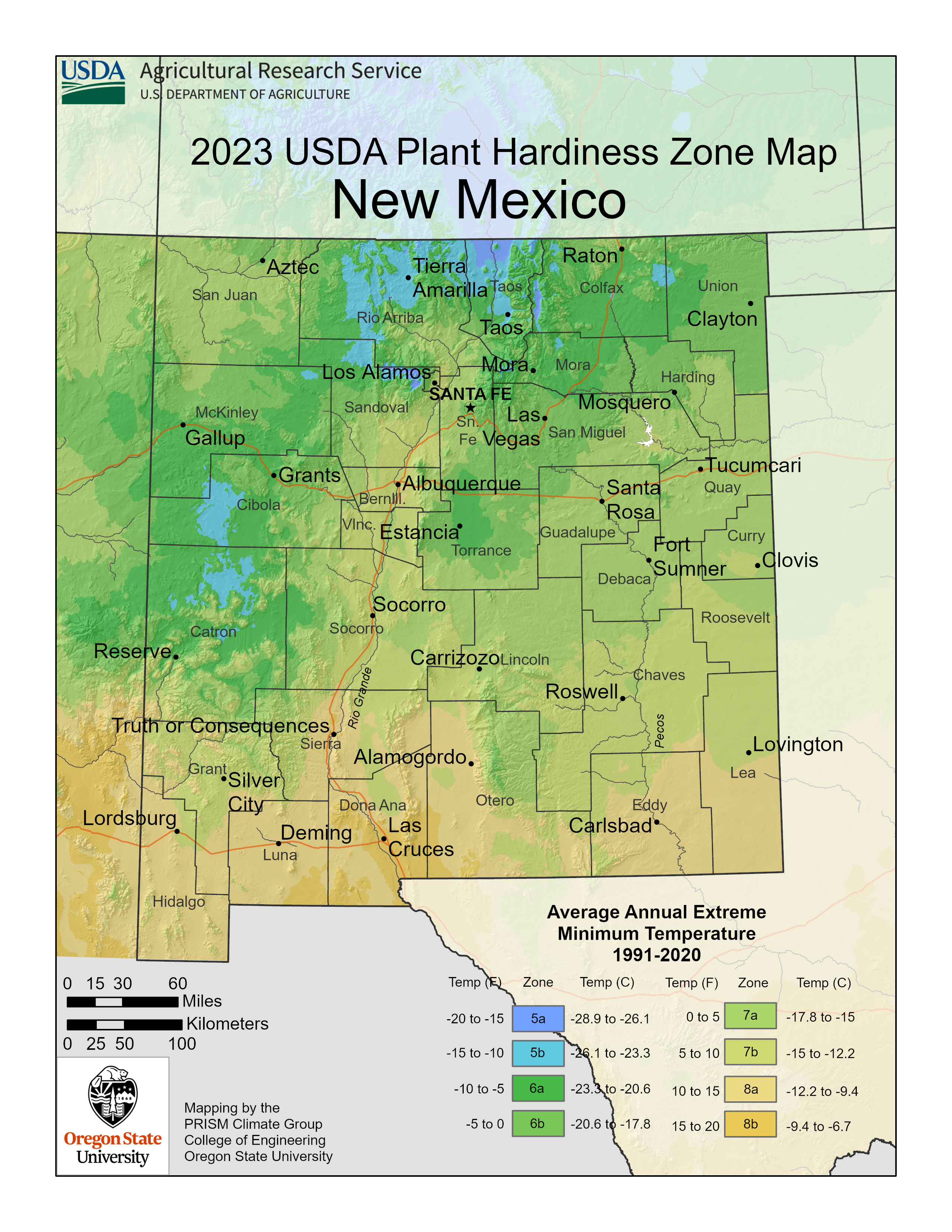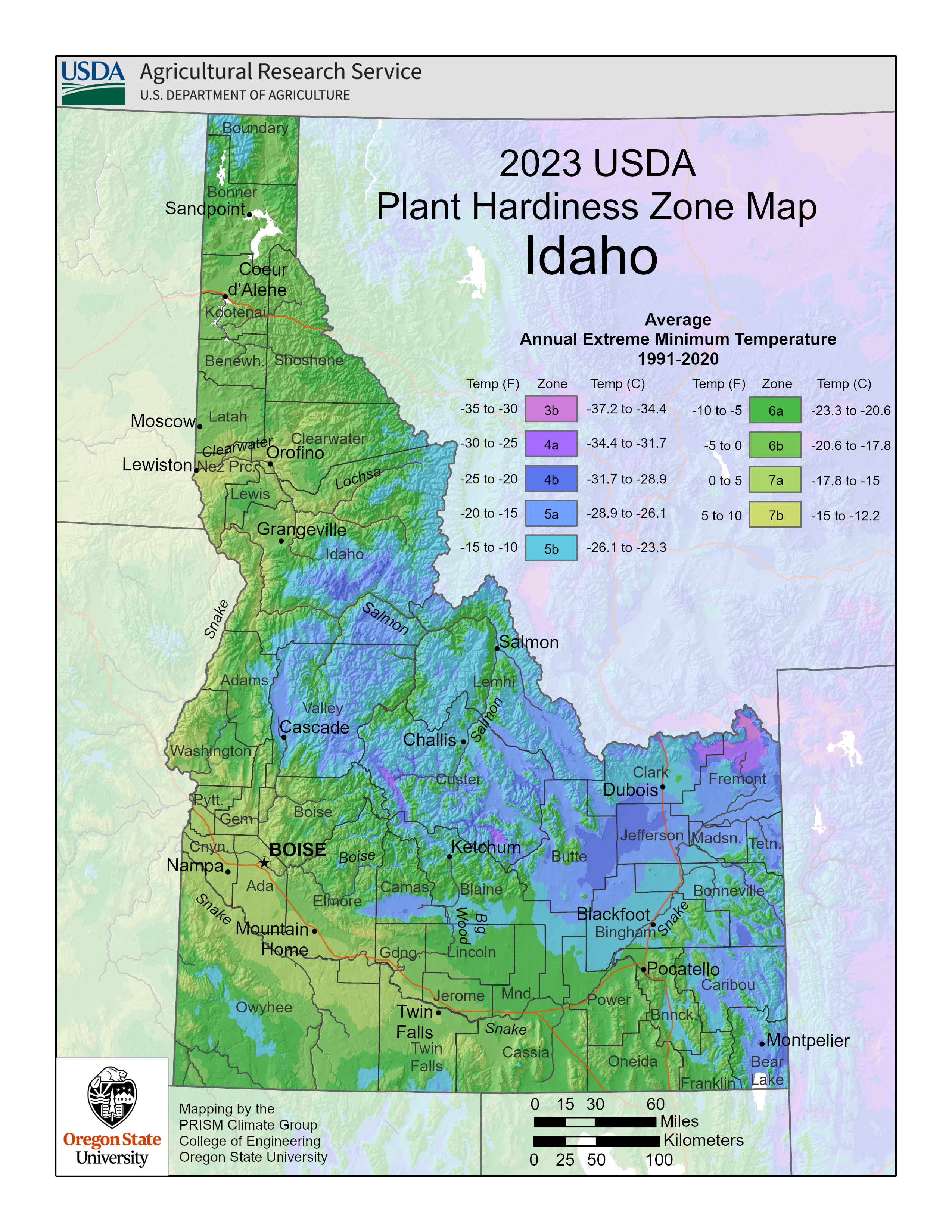Growing your vegetables for the first time can seem like a daunting task. If you start with the easy-to-grow veggies, you will be surprised at how simple they can be.
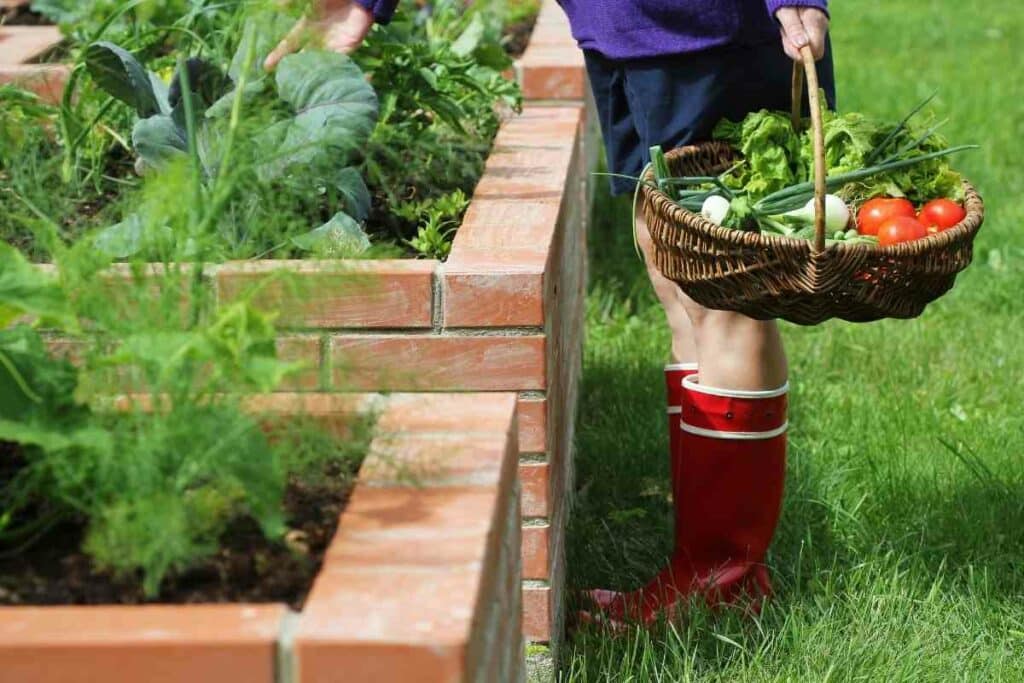
It’s time to get started on that idle patch of healthy soil at the end of your backyard.
Starting with seeds is the easiest way as it does not require you to have gardening experience.
Your desire to grow your food and save money is the first step towards a successful healthy kitchen garden.
Is It Cheaper To Buy Vegetables Or Grow Them?
Growing your veggies is cheaper than buying them at the food store in the long run.
You get to eat fresh, safe, and organic food as you are in charge of how and where they grow.
Fresh produce from the grocery stores, although available in plenty, may contain high residue of pesticides and insecticides.
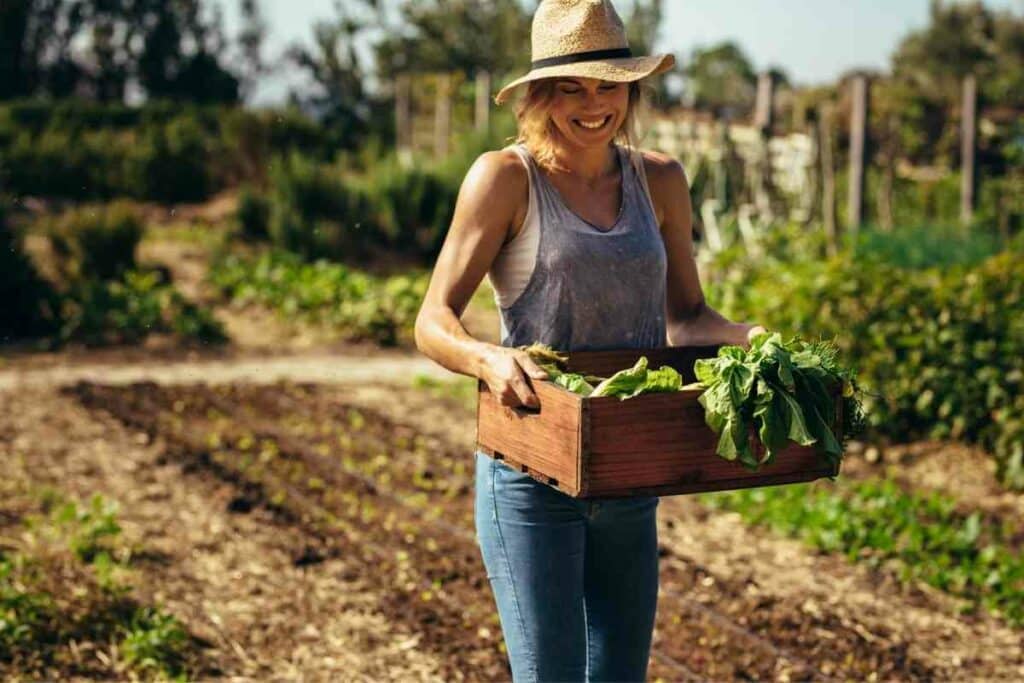
However, starting your garden can be expensive in the beginning.
You will need to spend hundreds of dollars to get it right the first time.
Gathering supplies and materials requires some money, and costs depend on the size of your garden.
Always Good Idea: It is advisable to get the help of a local gardener to give you a quick, professional guide. In a short while, the unpreserved harvest from your garden will save you a lot of your previous grocery money.
How Do You Start A Garden For Beginners?
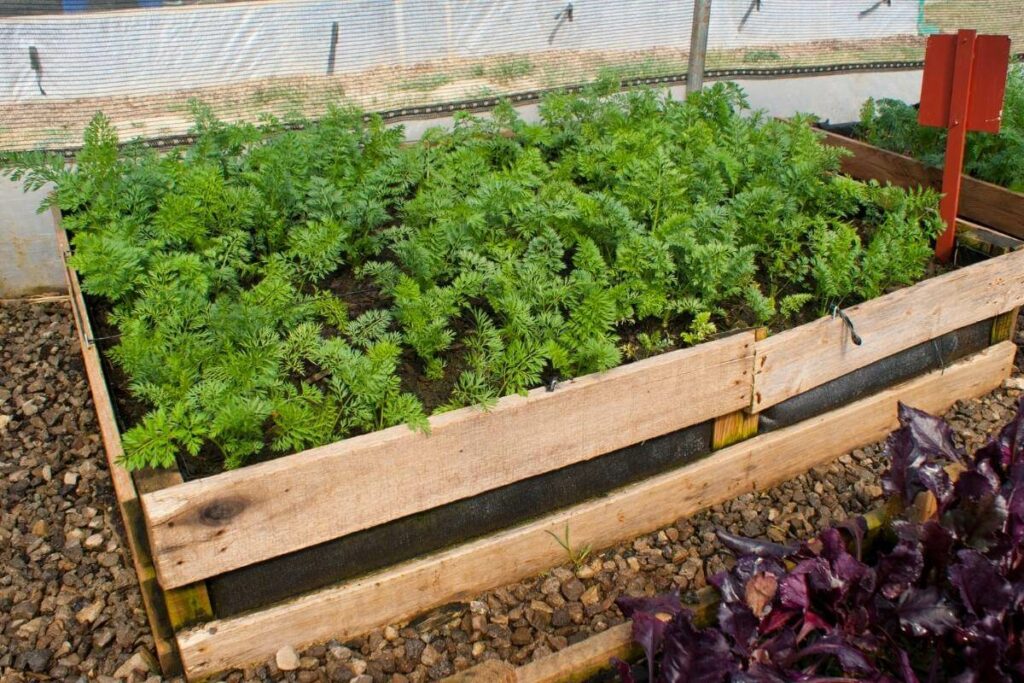
Below are the basics to starting your garden.
Choose what vegetables you want to plant
Start with a list of your favorites. Consult a local gardener to advise if the plants are suitable for your location.
Decide the location of your garden
Spots with direct sunlight and a little shade are perfect, especially near other tall plants.
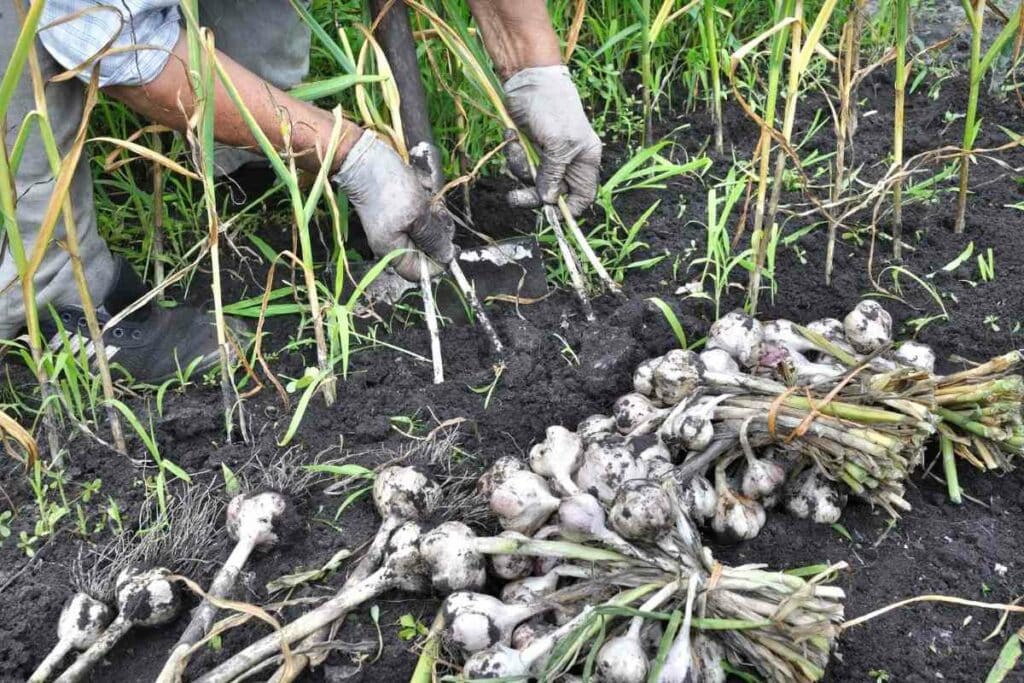
Ensure you have easy access to the garden and water supply.
If your yard is open, you can enclose your garden to protect it from damage by pets, wild animals, and curious children.
Get your soil tested
Knowing your soil’s type and pH levels is important for a healthy garden.
If your soil type is unsuitable for your crops, a professional gardener will advise you on how to replace it.
They will also determine the level of nutrients in the soil for the proper addition of fertilizers.
A soil pH of about 6-7 is excellent for a vegetable garden.
Buy simple gardening tools
Readily available in major stores, the right tools to start your garden should be easy to use.
Pick the right size for you and those made of durable materials.
Take proper care of your tools by cleaning and storing them well after use.
Set up your garden beds
Depending on your preferred size, you can start with either raised or sunken beds.
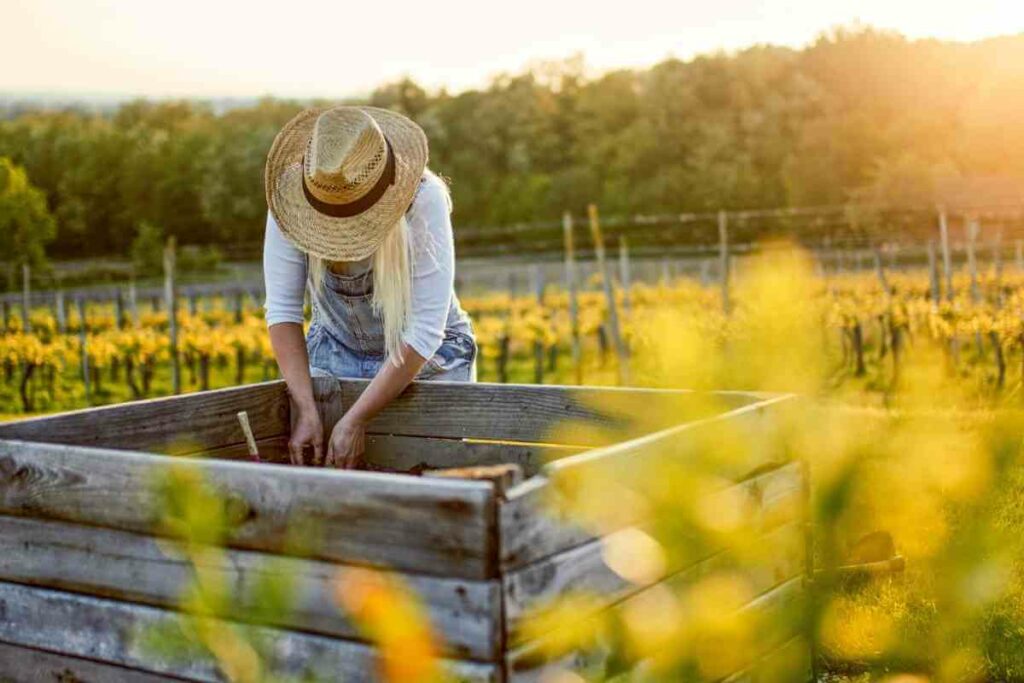
The difference between the two is the amount of water they require.
Sunken garden beds are good if the water supply is minimal or your area is dry.
Choose the pattern and number of rows for your plants.
Ensure you leave enough space between the vegetables, as crowding them can slow their growth.
Pick the right vegetable seeds
Start your garden by purchasing the best seeds based on your soil and location.
If you must use a transplant, have a professional nearby to guide you.
Carefully plant your seeds
By now, the ground is ready for actually planting.
Space your seeds as per the packaging instructions.
Ensure you protect them as they get easily damaged at this early stage.
Nourish your garden
You will only get the best out of your garden if you regularly tend it.
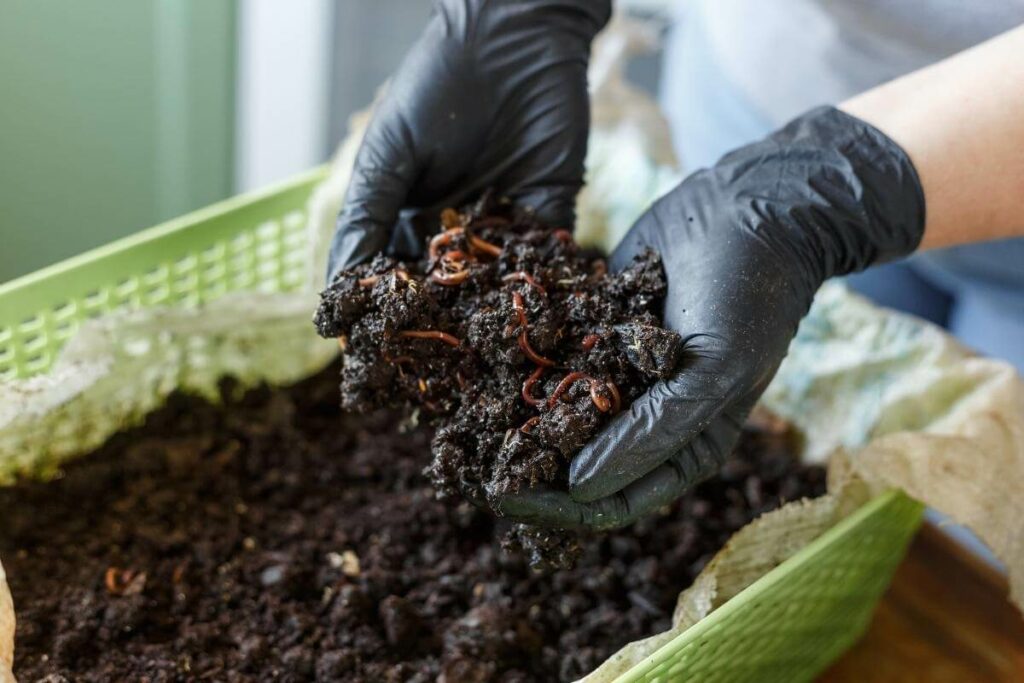
Take care of your plants by watering them frequently.
Weed the garden regularly. Use compost or fertilizer when necessary.
Keep pests and bugs away using organic solutions to reduce toxins in your homegrown veggies.
Savor your first harvest
The greatest joy is seeing your hard work pay off.
Harvest your first yield once they are ready to promote future regrowth.
Taste your vegetables to determine their flavor.
Do not give up if your first batch doesn’t turn out as expected. Sometimes the best garden requires a little more attention.
When Should I Start My Vegetable Garden?
The timing depends on the weather conditions the vegetables you want to plant require to thrive.
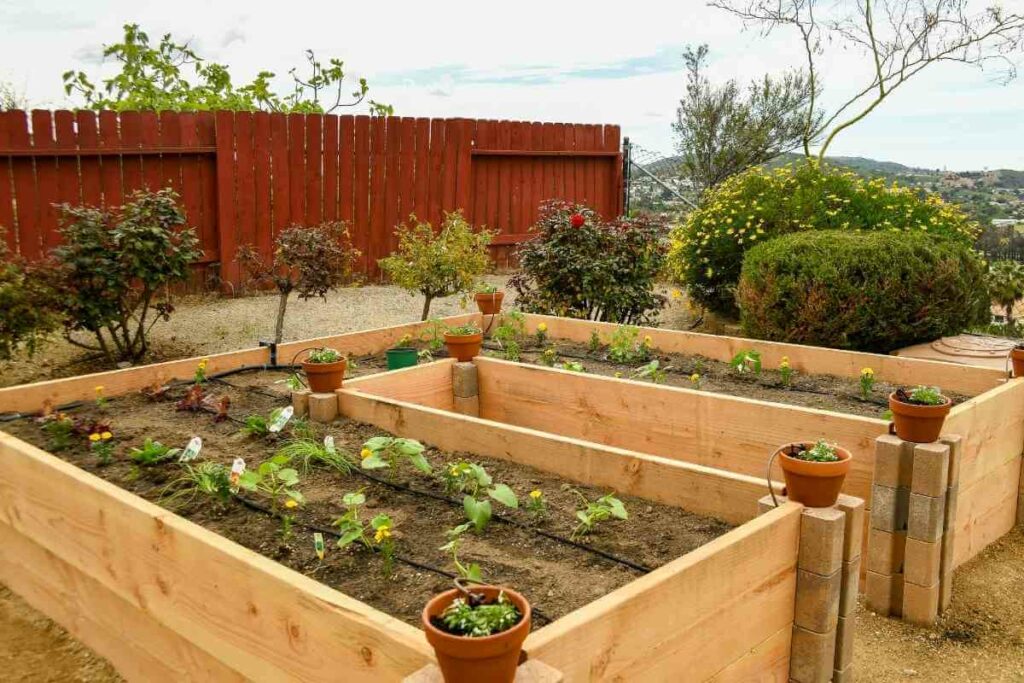
You may need to skip seasons to produce different kinds, so section your garden well.
Indoor gardens or greenhouses can be grown all seasons without direct exposure to the weather elements.
Vegetables that grow well in cool weather like onions, potatoes, and cabbages are best planted during late summer and early spring.
Corn, peppers, and tomatoes are a few you can start within the warm season. You can begin with them in late spring or early autumn.
What Vegetables Should I Plant In My First Garden?
Plant your family’s favorites in the first garden.
Those that you all love and eat regularly.
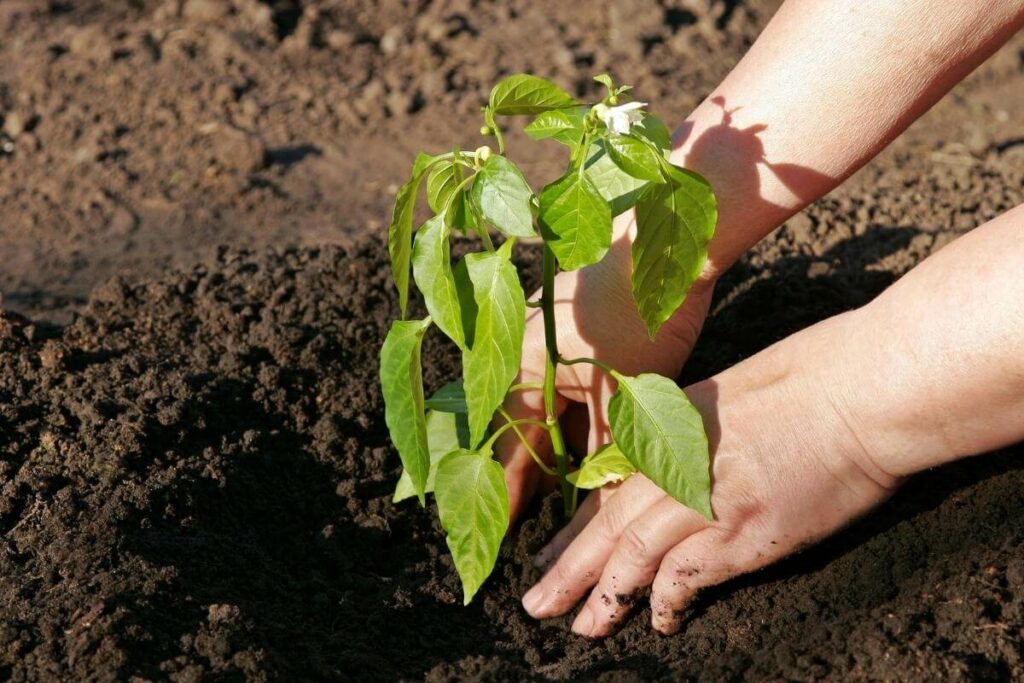
Be keen to check if they are ideal for growing in your area.
If you are a novice, here are the ten easiest vegetables for beginners to grow.
1. Peas
Green peas are ready to harvest in eleven weeks. They can tolerate light cold weather.
Pick the pods every day to establish reproduction.
2. Peppers
Bell peppers grow well under direct sunlight and in soil rich in nutrients.
Once ready to harvest, in about 90 days, they do not require much heat.
3. Green Onions
Scallions or spring onions are harvest-ready in about six weeks.
Besides needing direct sunlight and soil between 6-7 pH levels, they grow easily.
4. Herbs
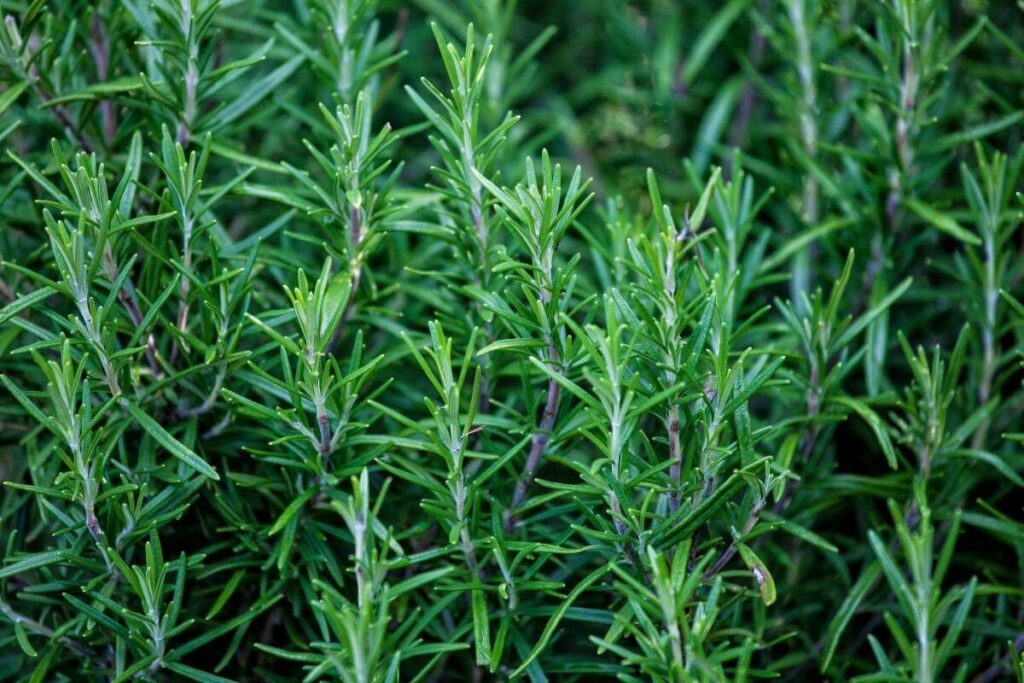
Mint, rosemary, and thyme are easy to grow outdoors and indoors. They require moderate sun and can be grown in containers.
5. Cherry Tomatoes
Cherry tomatoes grow well if planted in spring, under direct sunlight and good soil.
If watered well and taken proper care of, they should be ready to harvest in two and half months.
6. Leaf Lettuce
Lettuce thrives in soil that drains well.
Leaf lettuce does not require much sunlight, but plants’ spacing should be about 5 inches. As from eight weeks, you can harvest a few leaves.
7. Zucchini
Zucchini squash grows well in warm weather.
As long as you maintain the required soil moisture, they are ready to harvest in two months.
8. Spinach/Kales
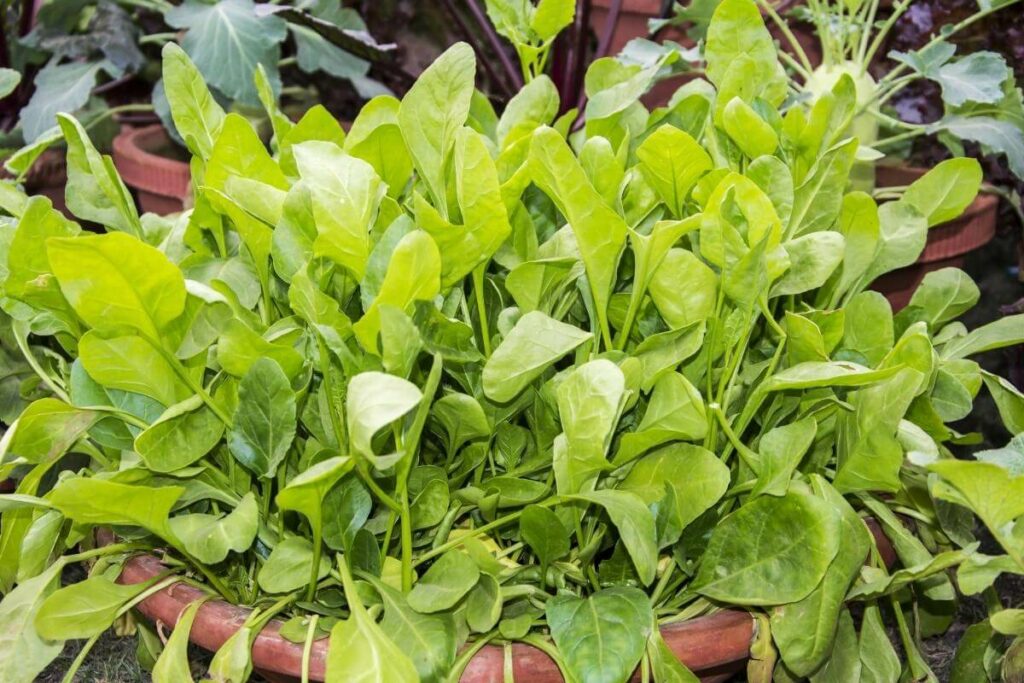
Both are from the same family and are nutritious.
Their seeds are easy to grow and are ready for harvest in about seven weeks.
9. Carrots
Carrots are well-loved delicious root crops. They love cool temperatures and grow well in a raised bed.
Water them well, and they should be ready for harvest in less than three months.
10. Radishes
Radishes do well if the soil is cool, proper spacing and harvests are done immediately they are ready.
You should harvest in about seven weeks. If you leave them down longer, they lose their taste and texture.
Vegetables To Avoid For A Beginner Garden
As a beginner, go slow on the type of vegetables you start growing.
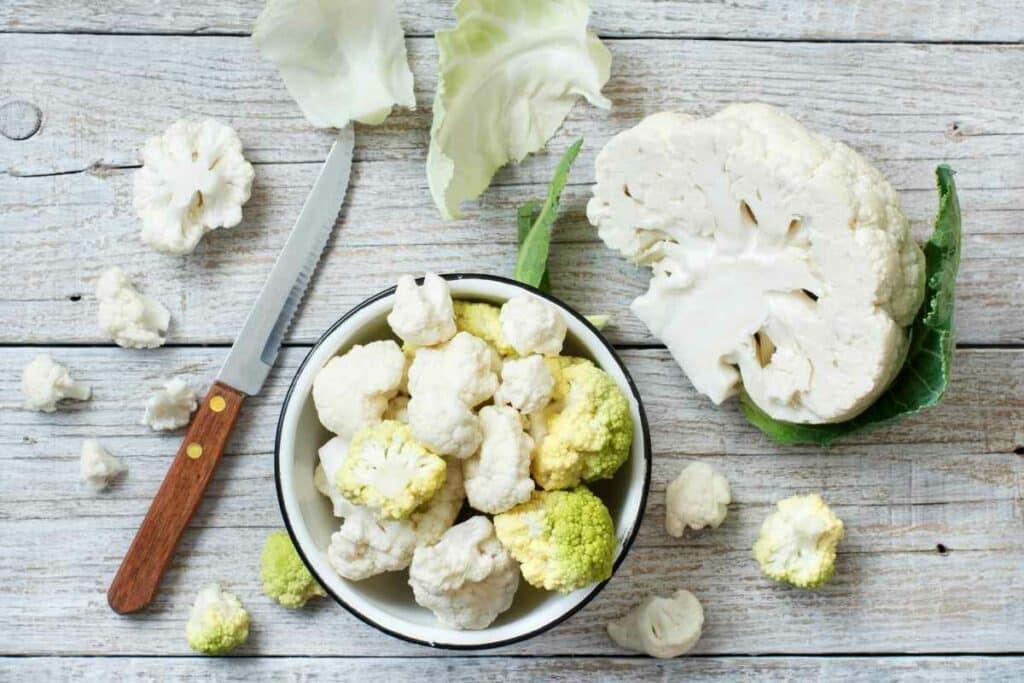
Those that do well in almost any weather are the best choice.
Some of the most difficult vegetables to grow as a beginner are sweet potatoes, cauliflower, artichokes, and celery.
These vegetables are susceptible to frost. They require a lot of direct sunlight and the right type of rich soil.
In Which Order Should I Plant My Vegetable Garden?
The design of your garden is vital to get a good harvest.
Consider the height of the different vegetables.
Mixing them may hinder some from getting adequate sunlight.
Plant the tallest vegetables at the northern end of your garden.
Vegetables that bulb or grow as roots, like carrots and radishes, should be well spaced and deeply rooted.
Plan the crop seasons depending on the weather.
Where Do Tomatoes Grow Best?
Tomatoes grow best in tropical areas or where there is direct sunlight all day.
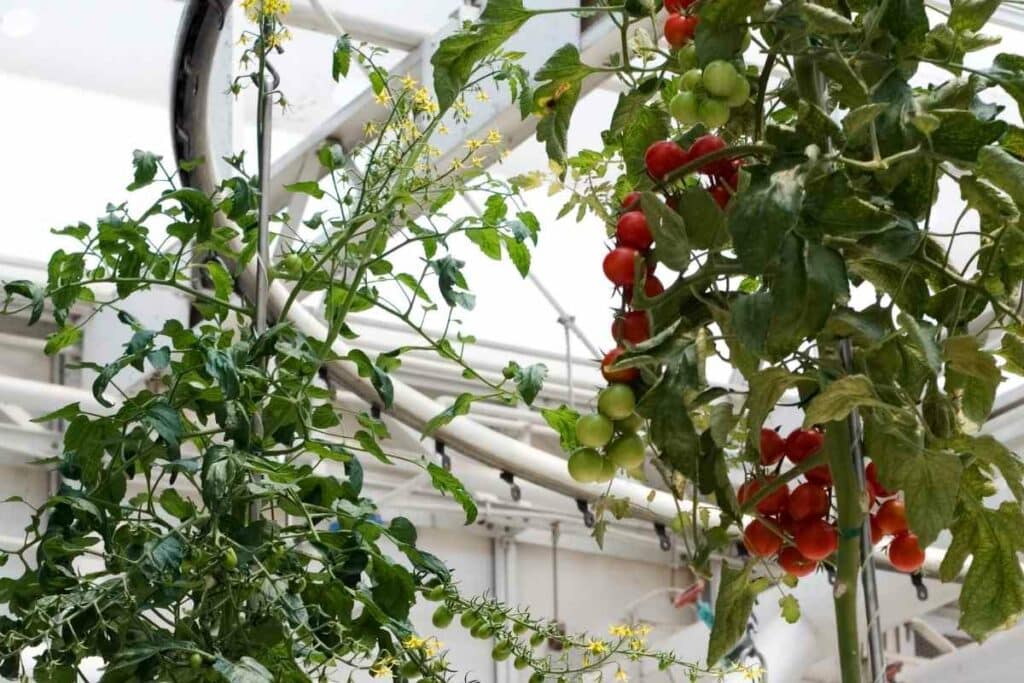
They are planted deeper in rich soil and should not be crowded together.
Ensure they get a lot of good air circulation. Mulch the soil beneath them to keep the heat in cool weather.
Trim the old leaves at the bottom to prevent rot due to fungus. Prune them to grow more fruit.
What Is The Healthiest Vegetable On The Planet?
Spinach is considered the healthiest vegetable on earth.
Green and full of nutrients, it is rich in antioxidants which protect us from heart disease.
Growing spinach is relatively easy. The time between planting and harvest is less than eight weeks.
You can harvest spinach all year round if you choose the best species for each season.
They require a lot of water, sun, and properly draining soil.
Common Vegetable Garden Mistakes Beginners Are Likely To Make
Vegetable garden beginners frequently give up after the first failed trial.
Gardening, like every other new skill, requires patience to master.
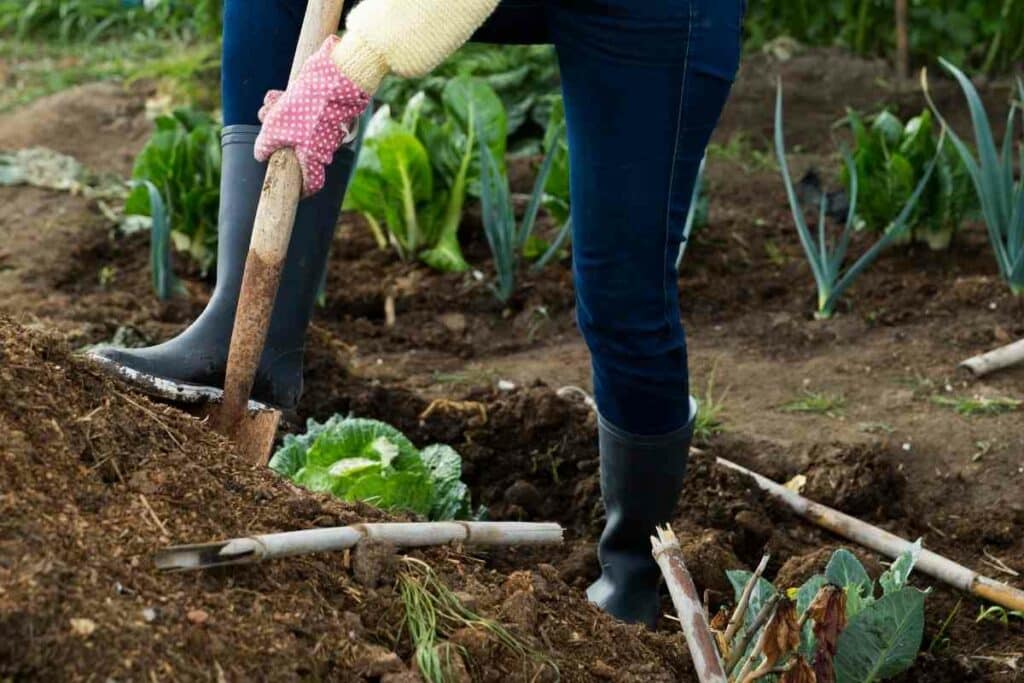
Visit other gardens around you, from neighbors to local farms.
Ask for help from an experienced gardener and let your garden teach you.
If you do not take care of your garden, your vegetables will die. Weed out regularly between the crops.
Remember This – Make sure your plants get sufficient light and water. Space the plants appropriately and ensure the soil is rich and fertile.
Lastly, do not start a large garden that you cannot handle.
Plant enough crops to meet just your family’s daily needs. Pick the right season to plant your ideal vegetables.
Do not plant too many varieties of crops when starting. Only expand after you have had a few seasons of a successful harvest.
Wrapping Up
If you plant the easiest vegetables for beginners listed above, there is no reason why you should not have a healthy harvest.
Follow the garden preparation steps keenly and consult an experienced gardener when in doubt.
